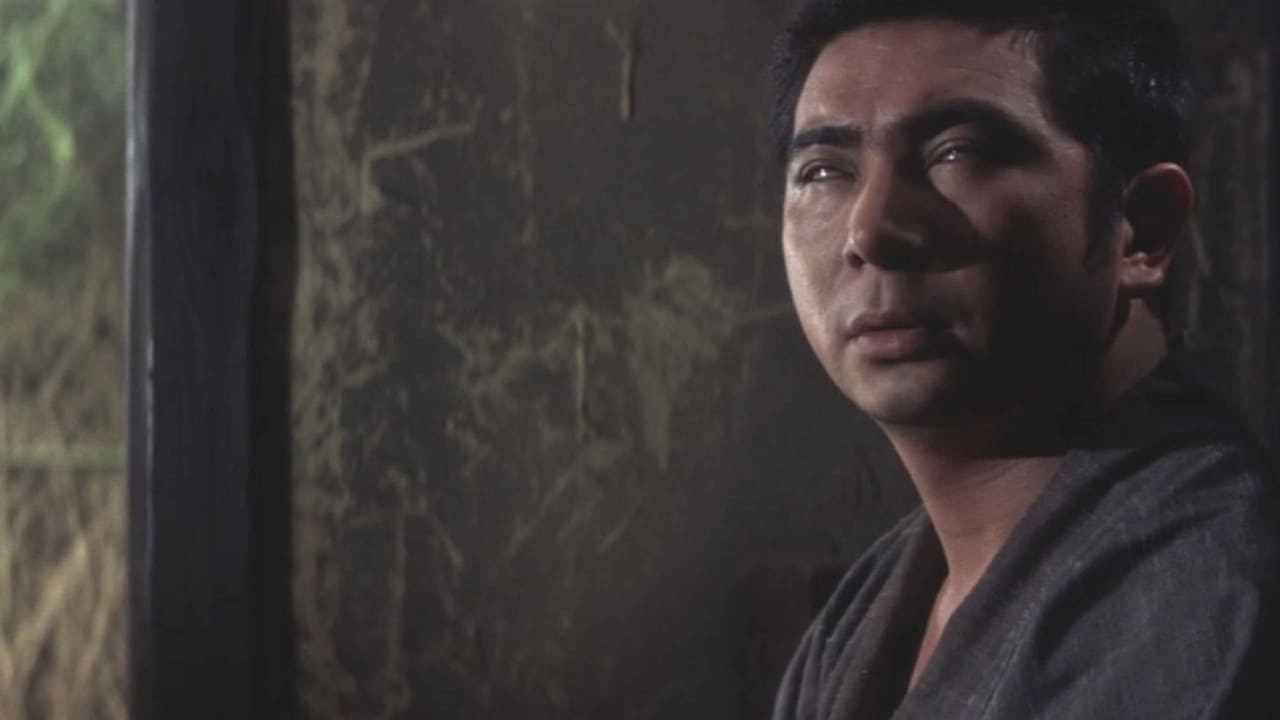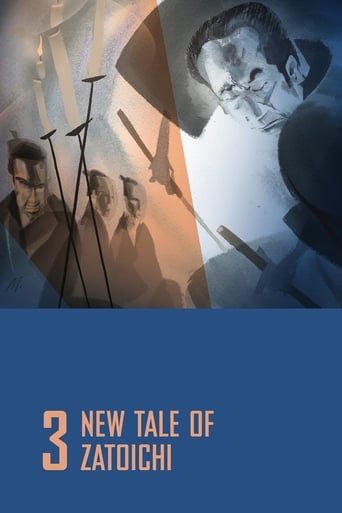RyothChatty
ridiculous rating
CommentsXp
Best movie ever!
Keeley Coleman
The thing I enjoyed most about the film is the fact that it doesn't shy away from being a super-sized-cliche;
Anoushka Slater
While it doesn't offer any answers, it both thrills and makes you think.
Zbigniew_Krycsiwiki
Daiei's logo is impressively shown for the first time in colour, in this, the third Zatoichi adventure, released only five months after the second film, and eleven months after the original.Well photographed in full colour, it's another beautiful looking film, and the director, and cinematographer, both know how to effectively use bright, vivid colours, contrasted with subdued tones, as the second film's villain's brother tries to avenge his death, while Ichi is dealing with a ruthless gang of thugs, but I must admit that I did prefer the monochromatic photography of the first two installments.
kurosawakira
Usually long film series see a gradual development or deconstruction of the main character simply because either the character changes or the environment does. Most often our heroes are marched through various situations, numerous more often than not, and only when the ticket sales start to diminish there's usually a twist in the hero's personality or identity.There's a third way, too. It has to do with the filmic problem of presentation, and usually this happens when the film is made during a historically significant technological paradigm shift. Sound was one, and nowadays it's most likely 3D, although more because of the commercial powers behind the technology. In the 1960s it was colour.With Zatōichi its introduction in this third film becomes deliciously ironic, since in the first two films there have been several japes different people play on Ichi because he's blind. In those moments we, the audience, have been able to see it with them, making us part of the bad guys' gang as well. This cinematically fruitful branch of narrative play extends here to the very form of the film itself – its colour.As a colour film this a very beautiful one. It's more inclined towards the subdued than the showy, and that's commendable. It's also more interested in characterization, really casting the second film in more realistic light as an afterthought. What's so striking is that while it's customary to have the hero denounce his craft and want to lead a normal life, it's usually fluff that lasts only a while. Not so here: Ichi really wants to quit, and promises to. It's made feasible, it makes sense. It feels like the right thing to do. But still we know that won't happen, that the torment will continue, and in part that's why we cheer for Ichi, that he might go on. They manage to make Ichi's torment our own. It really is expertly handled.Among the best in the series so far.
Tom (bighouseaz)
ROBTRAIN is telling the truth about this entry in the Zatoichi series. Zatoichi has to contend with the brother of Kanbei from film 2, a criminal gang, and most shockingly, his former sensei!Everyone (except Ichi's love interest) is basically a bastard. Zatoichi shows regret in the choices which have brought him into the yakuza world. And yet, Ichi always tries to do the right thing, showing respect for his sensei, refusing to believe that a young women from a samurai family could fall for him, and saving a kidnap victim. The drama builds and builds in this action-drama and leads to a great climatic scene involving Ichi and his sensei.It is obvious that Katsu Shintaro has worked on his sword technique and shows amazing speed and increasing agility in his moves. This is a great film and one of the best in the Zatoichi series.
John Seal
This is the third entry in the popular Zatoichi series, and as usual it features an outstanding performance from Shintaro Katsu as the blind masseur who is also a master of sword play. This time he takes on a gang of thieves who are marauding the countryside. Of particular note is Akira Ifubuke's brilliant and evocative score, reminiscent of his best work from kaiju.


